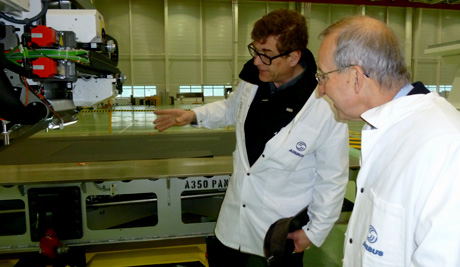The big theme for me this week has been the economic and high-tech co-operation between Britain and France. In terms of economies, we had Boris Johnson, the Major of London, in Paris last week. He gave a number of media interviews but also a big speech to businessmen here, in which his main theme is that London as a financial centre, it is a trump card for the whole of Europe.
Written version (continued)
French companies use London to raise capital to create jobs, to invest for the future. French companies invest in the British economy. In fact he chose several examples of services provided in the UK by French companies without necessarily British people being aware of it. Like London United Buses which are run by the RATP in France and many other services as well. This is one example of the economic partnership that is going on between our two countries.
Another was a series of events earlier this week around the aerospace industry. Here in Paris I was able to attend President Hollande’s ceremony with Airbus and the Indonesian airline, Lion Air, for the contract for 234 new Airbus aircraft and because Airbus is a genuine European company, a success for Europe is also a success for the British economy. On the same day, the British government launched their new aerospace strategy including the creation of a new institute for aerospace technology. £2bn over 7 years. £1bn each from the British government and from industry to promote high-tech research and development.
And by coincidence I saw some of that in action earlier in the week when I went to the Airbus facility at Nantes. This was extraordinary insight for me into the world of high-tech manufacturing. Nantes makes the central piece of an aircraft onto which the wings fit. The wings are made in Broughton, in Wales, then that whole structure is put on to the fusilage which is often made in Germany, and sometimes France, and the whole thing is assembled in Toulouse. It is a remarkable symbol of high-tech European co-operation.

